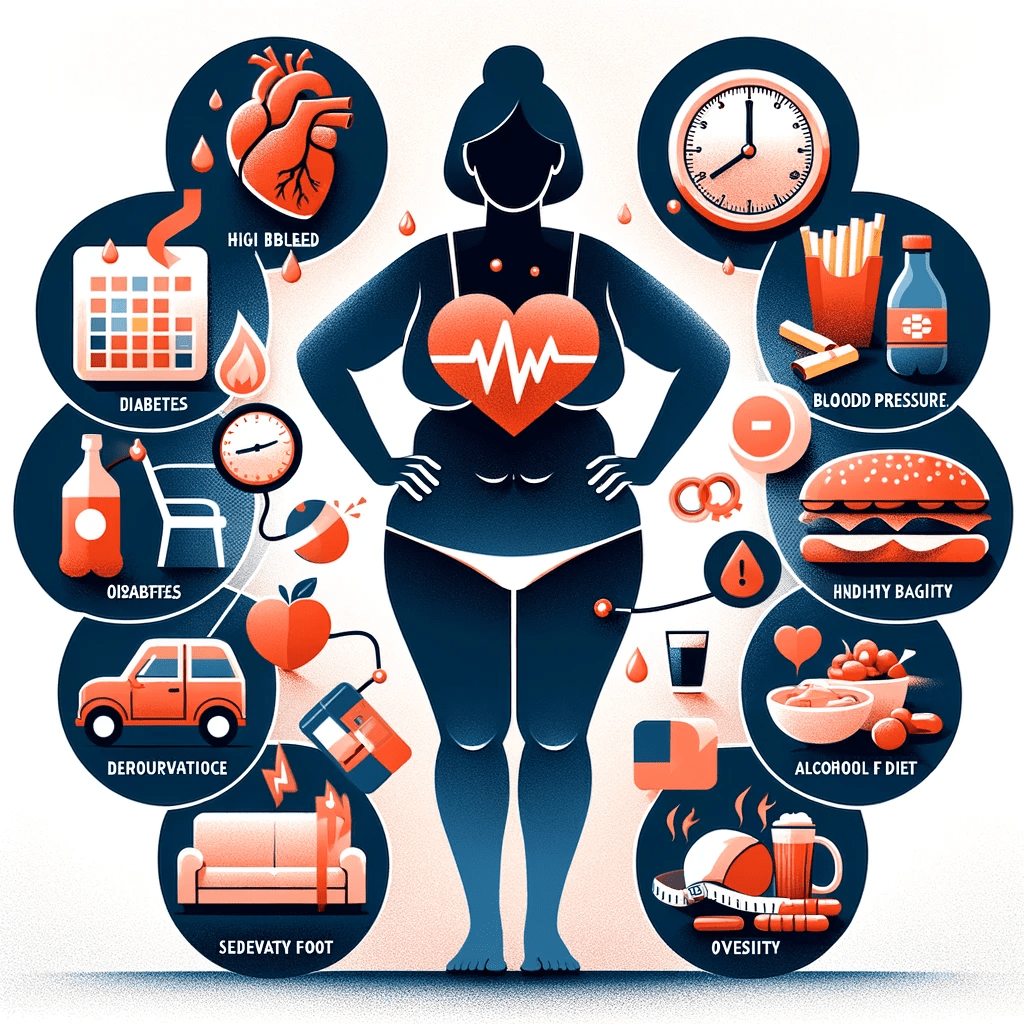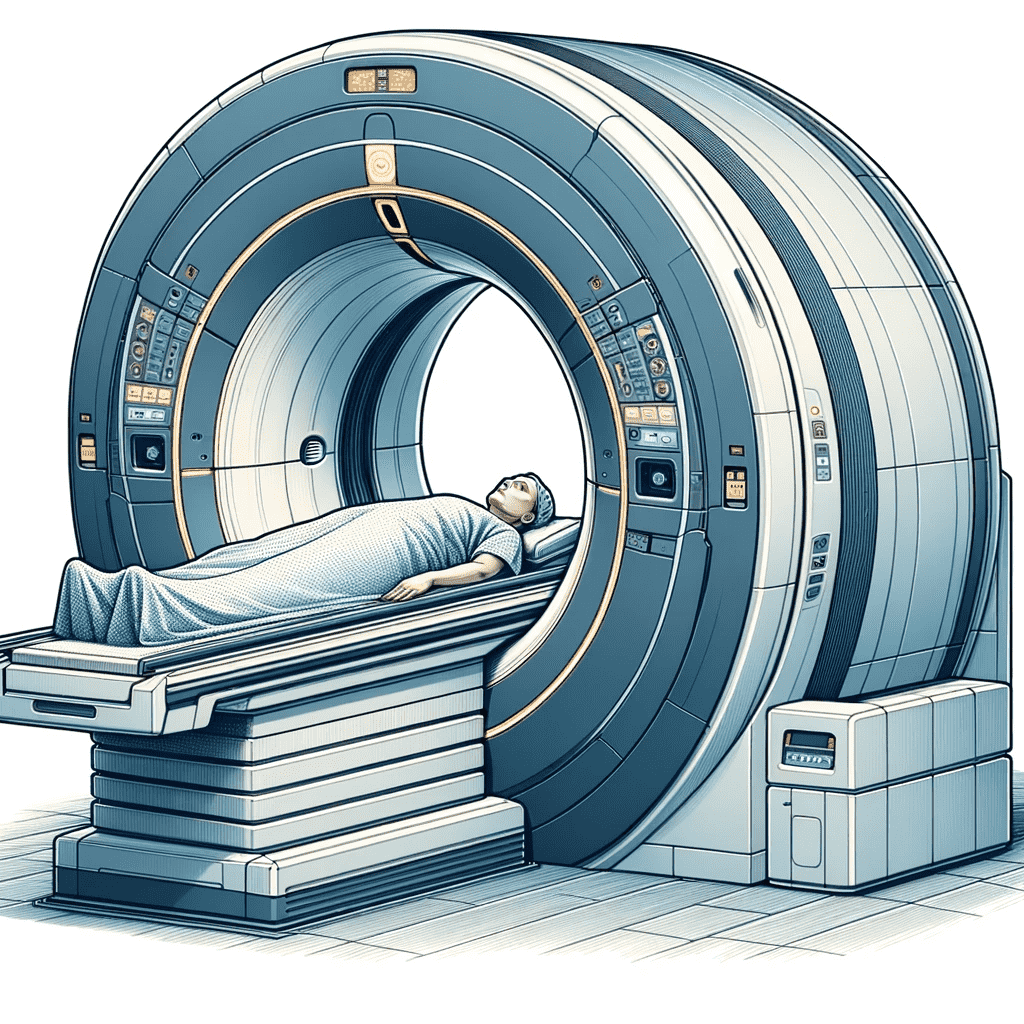Excerpt
In our fast-paced society, health is frequently sidelined until illness occurs, resulting in delayed diagnosis and complex treatments. Regular annual health check-ups serve as a proactive measure for optimal health, encompassing comprehensive body assessments and specialized tests tailored to individual needs. These evaluations are pivotal for early detection of health issues and identifying unique risk factors, including genetic predispositions and lifestyle choices. Regular annual check-ups are a key step towards disease prevention and a healthier life in a world with constantly evolving health risks.
Introduction
In today’s fast-paced world, individuals often neglect their health amidst the demands of daily life. Long working hours, hectic schedules, and the pursuit of various goals can lead to neglecting one’s well-being.

However, maintaining good health is crucial for a fulfilling and productive life. One effective way to ensure this is through annual health check up.
In this essay, we will explore the significance of annual health check up, its benefits, the components of a typical check-up, and practical tips for making the most of this vital healthcare practice.
I. The Importance of Annual Health Check-Ups
1.1 Prevention and Early Detection
Prevention and Early Detection is a crucial concept in healthcare, emphasizing the importance of annual health check-ups as a key component of preventive healthcare. This health check up serves as a fundamental tool for identifying potential health issues at an early stage, thereby allowing for timely intervention.
This approach is particularly significant in mitigating the risk of diseases escalating into more severe or chronic conditions.

Regular health monitoring through these check-ups enables individuals to stay informed about their health status. It’s not just about detecting illnesses; it’s also about maintaining an overall wellness profile. For instance, routine blood tests are a common element of these check-ups.
Annual health check up can uncover critical indicators like high cholesterol or elevated blood sugar levels, which are early signs of more serious conditions like heart disease or diabetes.
Detecting such indicators early on is vital because it provides an opportunity for individuals to make lifestyle adjustments or start treatments when they are likely to be most effective.

Moreover, early detection of diseases through these check-ups often leads to more straightforward and less costly treatments. This aspect is not only beneficial for the individual but also eases the burden on healthcare systems.
Preventive healthcare through annual check up is a proactive approach, contrasting with the reactive nature of seeking medical attention only after symptoms arise.
It empowers individuals to take charge of their health and fosters a culture of wellness and prevention, rather than solely treatment. This shift is crucial for improving long-term health outcomes and reducing the prevalence of preventable diseases.

1.2 Promoting a Healthier Lifestyle
Promoting a Healthier Lifestyle delves into how annual health check-ups can serve as a catalyst for individuals to embrace a healthier way of life. This commitment to regular health assessments instills a sense of accountability in people, motivating them to make beneficial changes in their daily routines.
Awareness of upcoming check-up often encourages individuals to reflect on their lifestyle choices, leading to improvements in diet, exercise, and other habits.

The impact of these lifestyle changes is profound. A healthier diet and regular exercise are well-known factors in reducing the risk of chronic illnesses such as heart disease, diabetes, and obesity.
When people know that their health will be evaluated regularly, they are more likely to adopt habits that positively influence these check-ups’ outcomes.

For example, someone aware of an impending health assessment may choose to eat more fruits and vegetables, reduce intake of processed foods, or increase their physical activity.
This proactive approach to health does more than just improve individual outcomes. It fosters a culture of wellness and preventive care, which can lead to broader public health benefits.

By reducing the risk of chronic illnesses, individuals not only enhance their own quality of life but also contribute to reducing the overall healthcare burden.
In essence, the practice of regular health check-ups acts as a continuous reminder and motivator for individuals to prioritize their health, leading to long-term benefits both for them and the society at large.

1.3 Peace of Mind
“Peace of Mind” centers around the psychological benefits of annual health check-ups, particularly in offering individuals reassurance about their health status. In today’s fast-paced and health-conscious society, concerns and anxieties about personal health are prevalent.
This is especially true for individuals with a family history of certain diseases, where the worry of genetic predispositions looms large.
Regular health check up serves as a critical tool in addressing these concerns, providing a tangible sense of relief and security.

The role of these check-ups in mitigating health-related anxiety cannot be understated. When individuals undergo these assessments, they receive concrete information about their health, which can be far more reassuring than assumptions or speculations.
For some, a clean bill of health can dispel worries and bring a sense of relief. For others, even if a check-up uncovers health issues, the knowledge gained is empowering.
Early detection of potential health problems allows for timely interventions, which can be less daunting than dealing with advanced or unexpected illnesses.

Moreover, these regular assessments create a structured framework for individuals to engage with their health proactively.
Knowing that they have scheduled check-ups can motivate people to maintain or improve their health habits, further contributing to their peace of mind.

In essence, the routine of annual health check up provides a psychological anchor, offering reassurance that health concerns are being monitored and managed.
This proactive approach not only helps in early detection and treatment of diseases but also contributes significantly to mental well-being, as individuals feel more in control of their health journey.
II. The Benefits of Annual Health Check-Ups
2.1 Early Disease Detection
This emphasizes the critical role of annual health check up in the early identification of diseases, an aspect pivotal to effective healthcare management.
Many serious health conditions, including cancer, diabetes, hypertension, and heart disease, often develop insidiously, presenting little to no symptoms in their initial stages.

This silent progression can delay diagnosis and treatment, often leading to complications and diminished chances of recovery. Regular health check screenings and tests conducted during these check-ups are instrumental in bridging this gap.

Through these screenings, medical professionals can detect abnormalities or early signs of disease that might otherwise go unnoticed. For example, routine blood pressure measurements can reveal hypertension, while blood sugar tests can detect pre-diabetic conditions.
Similarly, cancer screenings, like mammograms and colonoscopies, can identify early-stage cancers when they are most treatable.

The benefit of detecting diseases early cannot be overstated. It often means that treatments can be less invasive and more effective, significantly improving the prognosis. Early detection also allows individuals to make lifestyle changes or start medications that can halt or slow the progression of the disease.
Consequently, this proactive approach not only enhances the likelihood of successful treatment and recovery but also reduces the overall impact and cost of healthcare.
Therefore, annual health check serves as a crucial preventive strategy, offering an invaluable opportunity for early disease detection and intervention.

2.2 Customized Health Plans
Customized Health Plans highlights the significance of tailoring healthcare to individual needs, a practice made possible through comprehensive health check up. These check-ups gather a wealth of information, including test results, medical history, and risk factor assessments.
This data forms the foundation for healthcare professionals to devise personalized health plans, offering a more targeted and effective approach to patient care.
Personalized health plans are a departure from the one-size-fits-all paradigm. Instead of general health advice, these plans consider the unique physiological and genetic makeup of each individual.

For instance, a person with a family history of heart disease might receive a plan focusing on cardiovascular health, incorporating specific dietary recommendations, exercise routines, and regular heart monitoring.
Similarly, someone showing prediabetic symptoms might get a plan emphasizing blood sugar control through diet, exercise, and possibly medication.
This customization extends beyond preventing and managing diseases. It also includes wellness and lifestyle optimization, tailored to each individual’s health goals and life circumstances.
For example, a busy professional might receive a plan that integrates stress management techniques and efficient workouts into their hectic schedule.

Such personalized plans promote better health outcomes by addressing specific health needs and risk factors. They empower individuals to take an active role in their health, equipped with guidance that resonates with their personal health journey.
Moreover, these plans can evolve over time, adapting to changes in health status, lifestyle, or age.
Overall, the creation of customized health plans from health check up represents a proactive, patient-centric approach in healthcare, leading to improved health and wellness outcomes.
2.3 Cost Savings
Cost cutting underscores a critical but often overlooked benefit of early disease detection and prevention: the substantial cost savings in healthcare.

When diseases are identified and addressed at their onset, the financial implications are significantly less burdensome compared to managing advanced stages of illness. This cost-effectiveness is a key advantage of regular health check up and a proactive approach to health management.
Advanced stages of diseases often require complex and prolonged treatments, which can be financially draining. For instance, late-stage cancer treatments typically involve a combination of surgery, chemotherapy, and radiation, all of which are expensive.

In contrast, early-stage cancers might be treatable with less aggressive and more affordable interventions. Similarly, managing complications from advanced diabetes or heart disease can lead to frequent hospitalizations, specialized medications, and even surgeries, incurring high costs.
By identifying and tackling health issues early, individuals can often manage them with simpler, less invasive treatments. This not only leads to better health outcomes but also translates into lower medical bills.
Additionally, preventing the progression of diseases means less time off work and fewer disruptions to personal life, reducing indirect costs associated with lost productivity and personal care.

In essence, investing in regular health check up and preventive care is not just a health-conscious decision but also a financially savvy one, offering long-term savings by avoiding the high costs associated with advanced medical treatments.
2.4 Improved Quality of Life
Improved QOL delves into the profound impact that maintaining good health through regular check-ups can have on an individual’s overall life experience.
Proactive health management is not just about preventing or managing diseases; it’s fundamentally about enhancing the quality of life. Individuals who stay on top of their health are more likely to lead longer, more fulfilling lives with minimal physical constraints.
Regular health assessments can detect issues early, allowing for interventions that keep serious illnesses at bay. This preventative approach translates to fewer health-related limitations, enabling individuals to remain active and engaged in their preferred activities and hobbies.

Whether it’s playing sports, traveling, or indulging in hobbies, maintaining good health is key to enjoying these activities without undue strain or interruption.
Furthermore, being in good health means more than just physical well-being; it also encompasses mental and emotional health. When people are healthy, they tend to have a more positive outlook on life. They can fully immerse themselves in experiences, contribute meaningfully to their communities, and spend quality time with loved ones.
This state of well-being enhances their ability to pursue personal and professional goals with energy and enthusiasm.

Therefore, the benefits of regular health check-ups extend far beyond the medical realm. They lay the foundation for a life rich in experiences, unencumbered by avoidable health issues.
This proactive approach to health care during health check up is a crucial investment in one’s overall quality of life, paving the way for a healthier, happier existence.
III. Components of an Annual Health Check Up
3.1 Physical Examination
Here the focus is on the foundational aspect of a comprehensive annual health check-up, highlighting the importance of a thorough physical examination conducted by a healthcare provider. This initial step is vital in assessing an individual’s general health status and forms the basis for any further diagnostic procedures.
During the physical examination, a doctor or nurse evaluates key health indicators by measuring vital signs, which include blood pressure, heart rate, and respiratory rate. These measurements are essential for detecting any abnormalities that might indicate underlying health issues.
For instance, high blood pressure could be a sign of cardiovascular problems, while an irregular heart rate might signal a potential cardiac concern.

In addition to vital signs, the healthcare provider also assesses the patient’s overall physical appearance. This encompasses a visual inspection of the skin for any unusual marks or lesions, which could be indicative of skin conditions or more systemic health issues.
The patient’s body mass index (BMI) is another critical aspect of this examination. BMI provides a useful measure of body fat based on height and weight, offering insight into the patient’s risk for conditions like obesity, heart disease, and diabetes.

This comprehensive health check up forms the cornerstone of preventive healthcare. By evaluating these fundamental health parameters, healthcare providers can gain valuable insights into the patient’s well-being, paving the way for more specific investigations if needed.
This proactive approach is instrumental in maintaining good health and identifying potential health concerns at an early stage.
3.2 Medical History Review
This underscores the importance of a thorough evaluation of the patient’s medical background during a health check-up. This step is critical as it provides healthcare providers with a comprehensive understanding of the patient’s unique health profile, which is essential for personalized care.
During this review, the healthcare provider delves into various aspects of the patient’s medical history. This includes discussing any existing medical conditions that the patient has been diagnosed with or treated for in the past. Understanding these conditions is crucial for monitoring their progression and managing ongoing treatment effectively.

Allergies are another vital component of this history. Knowledge of any allergic reactions, whether to medications, foods, or environmental factors, is essential for preventing adverse reactions during treatments and in prescribing future medications.
The health check up also covers the medications that the patient is currently taking or has taken in the past. This information helps in assessing potential drug interactions and understanding the patient’s ongoing treatment regimens.

Perhaps most significantly, the healthcare provider explores the patient’s family history of diseases. This is a key factor in understanding the patient’s risk for certain genetic or hereditary conditions.
Diseases like cancer, heart disease, and diabetes often have familial patterns, and knowing this history allows healthcare providers to recommend specific screenings or preventive measures.
By gathering this detailed medical history, healthcare professionals can tailor the health check-up to address the patient’s specific risk factors and health needs, ensuring a more targeted and effective approach to healthcare.
3.3 Laboratory Tests
Laboratory tests are an integral part of a health check up. These tests may include:
a) Blood Pressure Measurement: To assess cardiovascular health and identify hypertension.
b) Blood Glucose Test: Blood sugar levels assessed to check for diabetes or prediabetes.
c) Cholesterol Profile: To evaluate lipid levels and assess the risk of heart disease.
d) Complete Blood Count (CBC): To assess overall health and detect conditions like anemia or infection.
e) Urinalysis: To examine kidney function and detect urinary tract infections.
f) Liver Function Tests: To assess liver health and function.
g) Kidney Function Tests: To evaluate kidney function and detect kidney disease.
h) Thyroid Function Tests: To check thyroid hormone levels and identify thyroid disorders.

i) Cancer Screenings: Depending on age, gender, and risk factors, screenings such as mammograms, Pap smears, prostate-specific antigen (PSA) tests, and colonoscopies may be recommended.
3.4 Imaging and Diagnostic Tests
In some cases, imaging and diagnostic tests may be included in the annual check-up. These tests can help identify structural or functional abnormalities in the body.
Common imaging tests include X-rays, ultrasound, CT scans, and MRIs. If any abnormalities are detected, further evaluation or specialized care may be recommended.

Where elaborate cardiac assessment is required, apart from routine ECGs, cardiac Stress Analysis on a Treadmill, echocardiogram, Speckle Tracking Echocardiography etc. would be indicated in a health check up.
3.5 Additional Assessments
Depending on the individual’s age, gender, and risk factors, additional assessments may be incorporated into the annual health check-up. These assessments can include bone density scans, eye and dental exams, skin checks, and hearing tests.

They aim to address specific health needs and ensure a comprehensive evaluation.
IV. Practical Tips for Maximizing the Benefits of Annual Health Check-Ups
4.1 Schedule Regular Appointments
To reap the full benefits of annual health check-ups, it’s essential to schedule and attend them regularly. Consistency in check-ups ensures that any changes in health are promptly addressed, reducing the risk of delayed diagnosis or treatment.
4.2 Communicate Openly with Healthcare Providers
Effective communication with healthcare providers is crucial during check-ups. Patients should be honest about their symptoms, concerns, and lifestyle choices. This information helps healthcare professionals make accurate assessments and provide appropriate guidance.

4.3 Follow Recommended Screenings and Tests
Follow the recommendations of your healthcare provider regarding screenings and tests. These recommendations are based on your age, gender, family history, and individual risk factors. Adhering to these guidelines can help identify and address health issues early on.
4.4 Ask Questions and Seek Clarifications
Don’t hesitate to ask questions and seek clarifications during your check-up. Understanding your test results, treatment options, and preventive measures is essential for making informed decisions about your health.
4.5 Maintain a Healthy Lifestyle
This highlights how annual health check-ups provide a pivotal moment for individuals to not only assess their current health status but also to gain valuable guidance on sustaining a healthy lifestyle.
These check-ups offer a unique opportunity for healthcare providers to impart personalized advice tailored to each individual’s specific health needs and conditions.

Key areas of focus during these discussions often include dietary habits, physical activity, stress management, and other lifestyle factors that significantly impact overall health. For instance, a healthcare provider may recommend a balanced diet rich in nutrients, appropriate for the individual’s age, health condition, and lifestyle.
Exercise advice might be tailored to suit one’s physical capabilities and preferences, emphasizing the importance of regular physical activity for maintaining health and preventing diseases.

Stress management is another crucial aspect, as chronic stress can lead to a multitude of health issues. Healthcare providers can offer strategies for effectively managing stress, such as mindfulness, meditation, or counseling.
By adhering to these personalized recommendations, individuals can enhance their well-being and mitigate the risk of health problems, reinforcing the integral role of annual health check-ups in promoting and maintaining a healthy lifestyle.
4.6 Keep Track of Your Health Records
Maintain a personal health record that includes your test results, medical history, and recommended treatments. This record can be invaluable for tracking your health over time and sharing information with other healthcare providers when necessary.

Conclusion
Annual health check up is a cornerstone of preventive healthcare, offering numerous benefits such as early disease detection, customized health plans, cost savings, and an improved quality of life.
The components of a typical check-up encompass physical examinations, medical history reviews, laboratory tests, imaging and diagnostic tests, and additional assessments as needed.(Read More…)

By following practical tips such as scheduling regular appointments, communicating openly with healthcare providers, and maintaining a healthy lifestyle, individuals can maximize the benefits of annual health check-ups. Ultimately, investing in regular check-ups is an investment in one’s long-term well-being and a step toward a healthier, happier life.